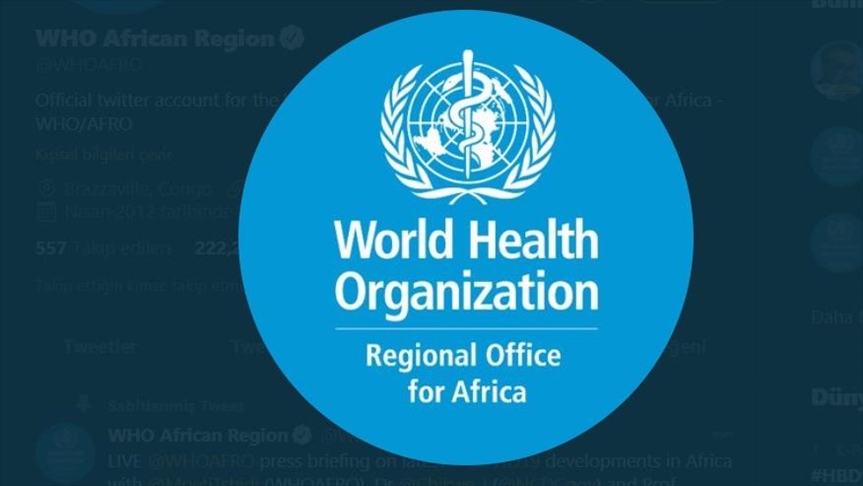By Asmau Ahmad
With the COVID-19 pandemic delaying meningitis vaccination campaigns for more than 50 million children in Africa, the region is at increased risk of outbreaks of type A meningitis, which has been nearly eliminated on the continent.
In a race against time, the World Health Organization (WHO) and its partners have released a roadmap aimed at stopping bacterial meningitis outbreaks by 2030, urging countries to quickly implement it before the start of the meningitis season.
The pandemic severely disrupted meningitis prevention and control services, with disease surveillance, laboratory confirmation of cases, and outbreak investigations all in steep decline.
Based on country reports, the WHO found that meningitis control activities were reduced by 50 per cent in 2020 compared to 2019, with a slight improvement in 2021.
Benin, Guinea, Guinea-Bissau, Nigeria and Togo delayed MenAfriVac vaccine campaigns aimed at protecting a total of 50 million children under 12 years of age against type A meningitis.
Historically, type A meningitis was the leading cause of meningitis outbreaks in Africa.
In 2010, however, Africa embarked on a journey to defeat type A meningitis when an effective vaccine, MenAfriVac, was developed and deployed.
The vaccine was developed in response to a request from African health ministers after an outbreak of type A meningitis in 1996 infected more than 250,000 people and killed more than 25,000 in just a few months.
With the support of WHO and its partners, more than 350 million people in 24 high-risk African countries have received the MenAfriVac vaccine since 2010.
The campaign to eliminate this type of meningitis has been immensely successful.
Although type A meningitis accounted for 90% of cases and deaths before 2010, no new cases have been reported since 2017.
Control of this deadly form of meningitis has resulted in fewer deaths from type A meningitis and other types of microorganisms.
While 50 per cent of people with meningitis died in 2004, in 2021 95% of cases survived.
“The defeat of type A meningitis is one of Africa’s greatest health success stories, but the fallout from COVID-19 hampers our drive to eliminate this bacterial infection as a public health threat once and for all, and could lead to catastrophic flare-ups”, said Dr. Matshidiso Moeti, WHO Regional Director for Africa.
“As we prioritize the response to COVID-19, we must not lose focus on other health issues. I urge countries to accelerate implementation of the new WHO regional roadmap now, before the meningitis season begins in January 2023.”
While no cases of type A meningitis have been reported in Africa for the past five years, outbreaks still occur and are caused by other types of meningococcal bacteria.
In 2019, 140,552 people in the African region died from all types of meningitis.
Major outbreaks caused by type C meningitis have been reported in seven meningitis belt countries since 2013.
In 2021, a four-month outbreak in the Democratic Republic of the Congo claimed 205 lives.
Additionally, the Africa region accounts for the largest number of new meningitis cases globally and is the only region still experiencing outbreaks.
The continent reports 100 cases of meningitis per 100,000 inhabitants, the highest incidence in the world.
“More than 400 million Africans are still at risk of seasonal meningitis outbreaks, but the disease has remained under the radar for too long,” said Dr Moeti.
In an ambitious bid to defeat bacterial meningitis in the African region by 2030, the new regional strategy launched today lays out a roadmap for countries to strengthen diagnosis, surveillance, care, promotion and vaccination to eliminate outbreaks, reduce deaths by 70 per cent and halve infections.
WHO estimates that $1.5 billion will be required between now and 2030 to implement the plan, which, if fully adopted by countries, will save more than 140,000 lives each year in the region and will significantly reduce disability.
Meningitis is caused by inflammation of the membranes that surround the brain and spinal cord and is spread through a sneeze, saliva, or phlegm from the nose and throat of infected people.
Acute bacterial meningitis is one of the deadliest and most disabling forms of the disease.
It can cause death within 24 hours and leaves one in five infected people disabled for life after infection.
In Africa, the meningitis season is particularly long, running from January to June. Although meningitis affects people of all ages, young children are most at risk, with about half of cases and deaths in children under 5 years of age.




